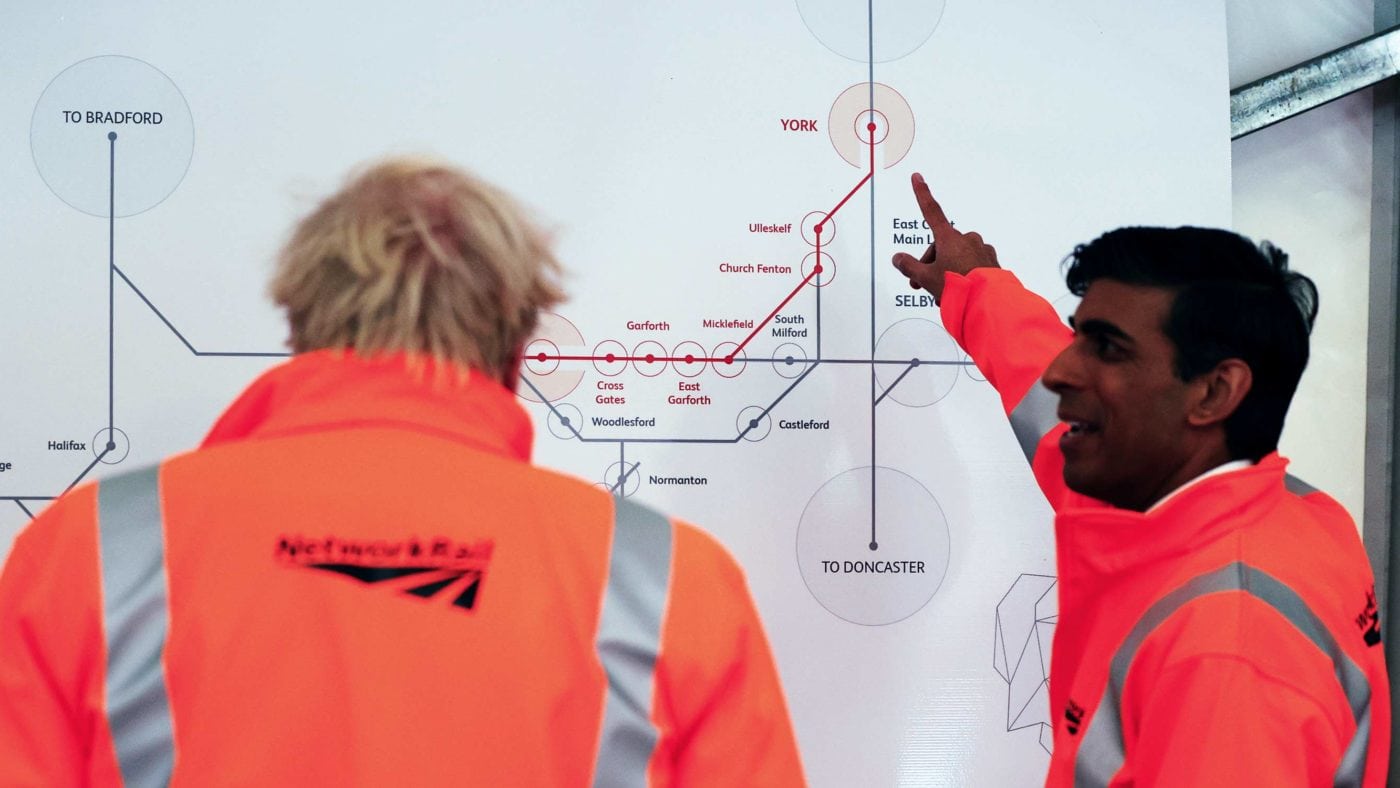The Government’s commitment to – and strategy for – ‘levelling up’ the north of England and the West Midlands got a shellacking in the media last week.
First came the slightly strange news, courtesy of The Times, that the Government was set to abandon the phrase altogether and replace it with something like ‘gauging up’. Quite what was to come of the Levelling Up White Paper, the Department for Levelling Up and the Levelling Up Secretary was not at all clear.
Next came the story that the south of England was set to receive more money from the second round of the Levelling Up Fund’s grants than the north. A fair few different versions of this analysis followed, with some arguing that because investment per head was still higher up north, there wasn’t much to the story. Still, the hundreds of millions being pumped into London and the south-east seemed odd to many.
Was the Government, some wondered, turning its back on the Red Wall and instead looking to shore up its historic Home Counties base instead? Was Rishi Sunak pivoting away from Darlington and back to Didcot?
Setting aside the branding of ‘levelling up’, the question of where its funding should go is not an unreasonable one. While he was campaigning to become Tory leader in the summer, Sunak got himself into hot water when he claimed that as Chancellor he had unpicked the funding formulas that disproportionately benefitted northern urban towns. Cue opprobrium from Red Wall Tories and his various political opponents.
Now, I am neither a Conservative nor an apologist for this Prime Minister, but it is worth pointing out that what Sunak was trying to say – however ham-fisted – was that there were places a long way from the so-called ‘left behind’ communities of Blyth and Bury that need levelling up-style support too.
And if that is what he really thinks – and it would certainly seem so from the grants dished out last week – then he would not be wrong. Even in Greater London, post-industrial areas like Feltham and Dagenham have more in common with Redcar than they do Islington.
The truth of the matter, however, is that the whole grant story is a red herring. The funding available does have the capacity to improve morale in a few places by giving a lick of paint to a few high streets. But redressing ingrained regional inequality will mean making big, brave political decisions. Some of these could be cost-neutral, others will come with huge bills attached. But most importantly all of them need Sunak and Levelling Up Secretary Michael Gove to spend some serious political capital.
Getting devolution right is central to this. That means more than just organising the combined authorities and mayoralties which the government is so keen to push just now: real tax raising and tax cutting powers need to be pushed down to regional and local politicians. When local leaders have the power and accountability needed to make bold calls you will see real political and policy innovation and transformation start to take place.
Intelligent planning reform is essential too. For too long both businesses and the housing market have been held back by an archaic and creaking system that too often says no to new developments and changes. Meaningful reform could mean local and regional plans developed that took into account both cultural and economic drivers.
Both of these changes could be delivered in a relatively fiscally neutral manner.
But they only take us half the way there. Public services need reform and investment too. You cannot, for example, deliver a regional economic plan without investing properly in skills. Post-16 and further education funding remains shameful – and the same currently goes for adult education too.
Similarly, polling and focus groups tell us that ‘levelling/gauging up’ (or whatever we end up calling it) will only be seen as a success when crime and anti-social behaviour are in retreat. Again, this means both reform and investment in the kind of policing that will deliver the tangible change voters are crying out for.
Perhaps the most expensive and most politically risky of all is transport infrastructure. The blunt truth is that without massive investment in transport – up to and including Northern Powerhouse Rail and HS2 in its entirety – the north will never reach its economic potential.
The state of our railways is nothing short of a national humiliation – as anyone who’s tried travelling by train from Manchester to London in the last few months can attest. And try getting from the north-east to the north-west – that too is little more than a joke.
The crux of the matter is that whether it’s in Morden or Morpeth, delivering anything close to the levelling up the Government promised in 2019 will take more than a few grants scattered across the country. It will require the kind of investment, both fiscal and political, that Rishi Sunak has so far appeared entirely unwilling to commit.
Over to you, Keir?
Click here to subscribe to our daily briefing – the best pieces from CapX and across the web.
CapX depends on the generosity of its readers. If you value what we do, please consider making a donation.


